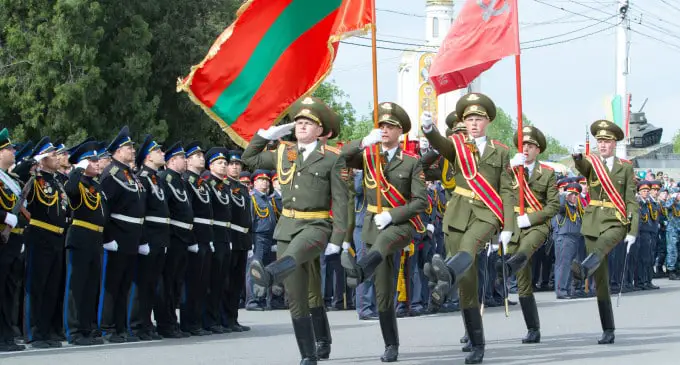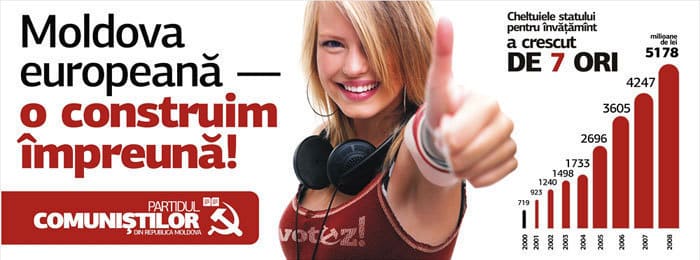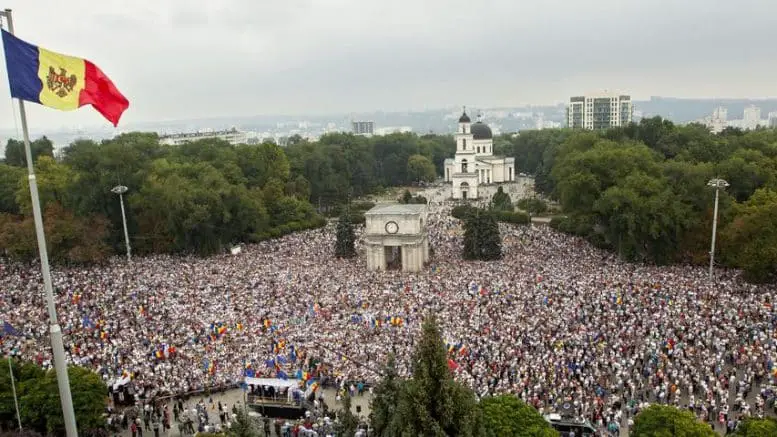Moldovan politics are some of Europe’s most complicated and interesting. In an era when democracies are increasingly appraised by the rapidity of changes and degree of fluidity within the ruling regime, Moldova represents a system where constant change has led to dysfunction and gridlock. Moldova provides a fascinating case study of how demographics, history, shifting public sentiment, corruption, and even well-meaning idealism can result in a democracy’s long-term economic and political impediment.
As the USSR crumbled, a pro-western, nationalist liberal movement arose in Moldova. Dreaming of a unified space where Moldovan culture and language would flourish and authoritarianism would be forever banished, that movement passed new laws giving precedence to the Moldovan language and created a unified state with a strong parliament and weak president.

Despite having its own military and defacto independence, Transnistria is still regarded as part of Moldova. Negotiations between Transnistria and Moldova have been stalled for more than two decades.
This immediately sparked problems within the state’s fractured political geography. Two geographically compact ethnic minorities – one in Transnistria (Russians) and one in Gaugazia (Gaugaz, who speak Turkish) – pushed back against the new laws that would effectively require them to learn a new language in order to interact with their government. The conflict eventually descended into civil war and a political crisis.
Promising to resolve the situation, the Communists were swept back to power – a European first in what was deemed to be a free and fair election. When the Communists proved unable to resolve what had become an increasingly entrenched crisis, a collection of political parties united to gain just enough seats to push the Communists back into a minority position – but not enough to prevent them from using obstructionist policies to cause a constitutional crisis.

As its power was starting to crack, Moldova’s Communist Party tried to rejuvenate itself in 2008 with youthfull ads like this one – showing the growth in state expenditures on education under the PCRM’s rule.
The liberal parties now in the majority, furthermore, proved unable to unite to pass and institute coherent policies to resolve ongoing crises and reform the country’s institutions and infrastructure to compete economically at European levels. A series of new crises, scandals, and political infighting has kept the constantly fluctuating ruling coalitions fractured. The Communists themselves are now imploding – largely as a reaction of members to the now entrenched and ineffective party leadership.
All of this has meant that the country is handicapped by its politics rather than benefited by them. Further, where Moldova could go from here is anyone’s guess. The scandals and infighting have created an opportunity for a wealthy businessman who some fear aspires to authoritarianism to gain a powerful place in government. They have seen the rise of a new Socialist party that has rapidly accumulated a quarter of the parliament’s seats and now controls the presidency. They have also recently seen the rise of at least one politician attempting to build a new liberal movement around herself, free of corruption scandals – at least for now.
The following series seeks to explain Moldova’s current political situation through the biographies of the Moldovan politicians who helped shape it.
In this series:


